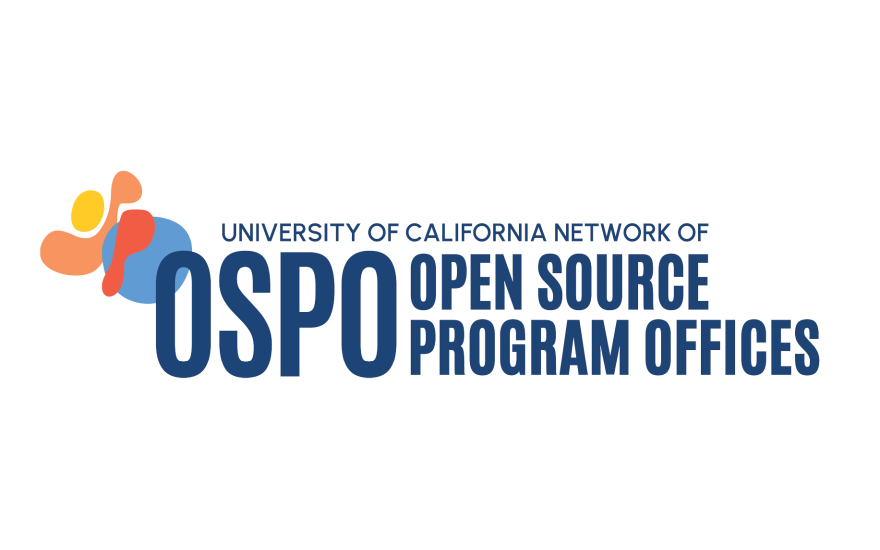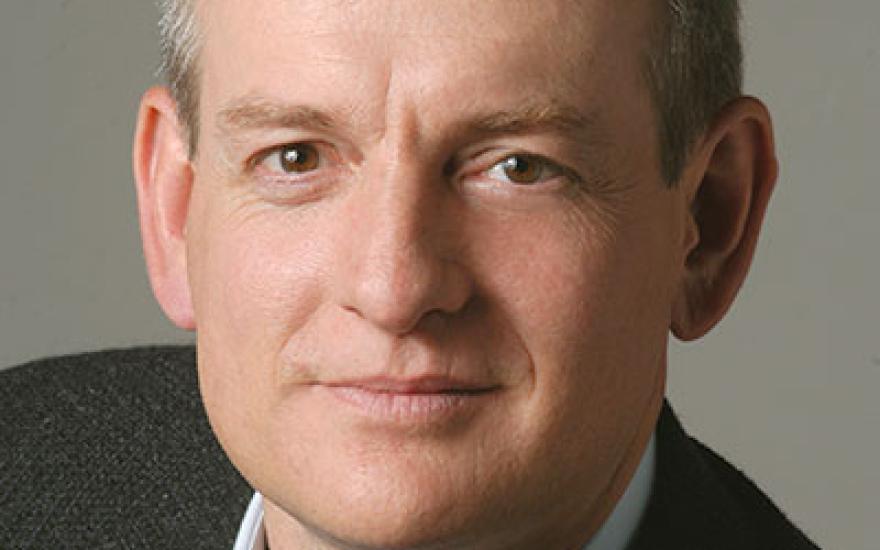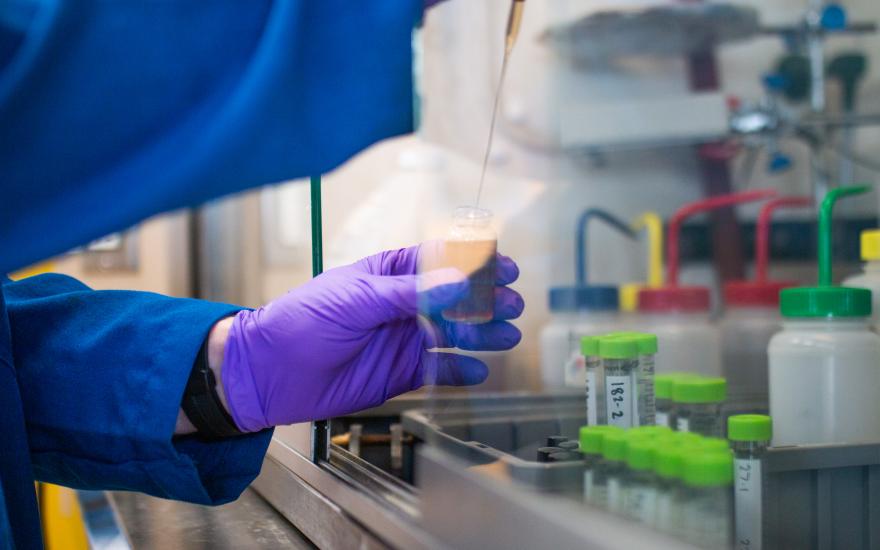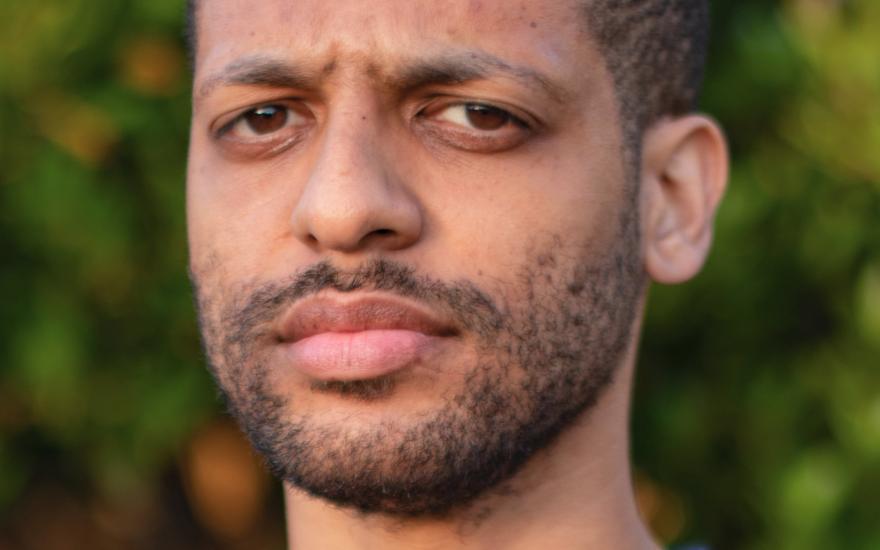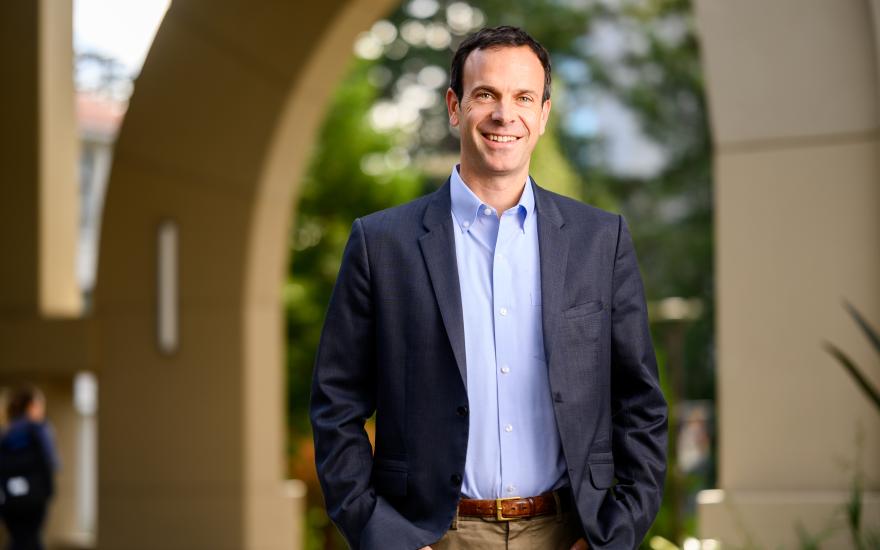Designing devices for people with disabilities requires more than engineering know-how; it requires a desire to understand the different ways we all interact with the world. For Corten Singer (B.A.’17 CS, B.A.’17 CogSci, M.S.’18 EECS), a self-described maker, nothing is more fulfilling than developing assistive technologies that make an impact on people’s everyday lives.
Now, he’s poised to do just that. With fellow Berkeley alum Tomás Vega (B.A.’17 CS, B.A.’17 CogSci), Singer has co-founded Augmental, an assistive technologies company that has developed a unique tongue-controlled touchpad, MouthPad^.
MouthPad^, which debuted this month at the Consumer Electronics Show (CES 2024), transforms the concept of the computer mouse or trackpad into a Bluetooth-enabled device that rests like a retainer on the roof of one’s mouth. By sliding or pressing their tongue, or even creating reverse pressure in their mouth with a “sip” gesture, MouthPad^ users can direct their cursor to perform standard operations like click, click and drag, and a right click. The device also features a pressure sensor and a motion sensor, so that head movement and other gestures can be used for input.
“We were trying to make it as intuitive as possible to control a cursor,” said Singer. “This is to enable more universal access to the control of one’s personal devices — computer, smartphone, tablet. Such access doesn’t depend on using the hand-based paradigm, which has pretty much dominated computer interaction for decades.”
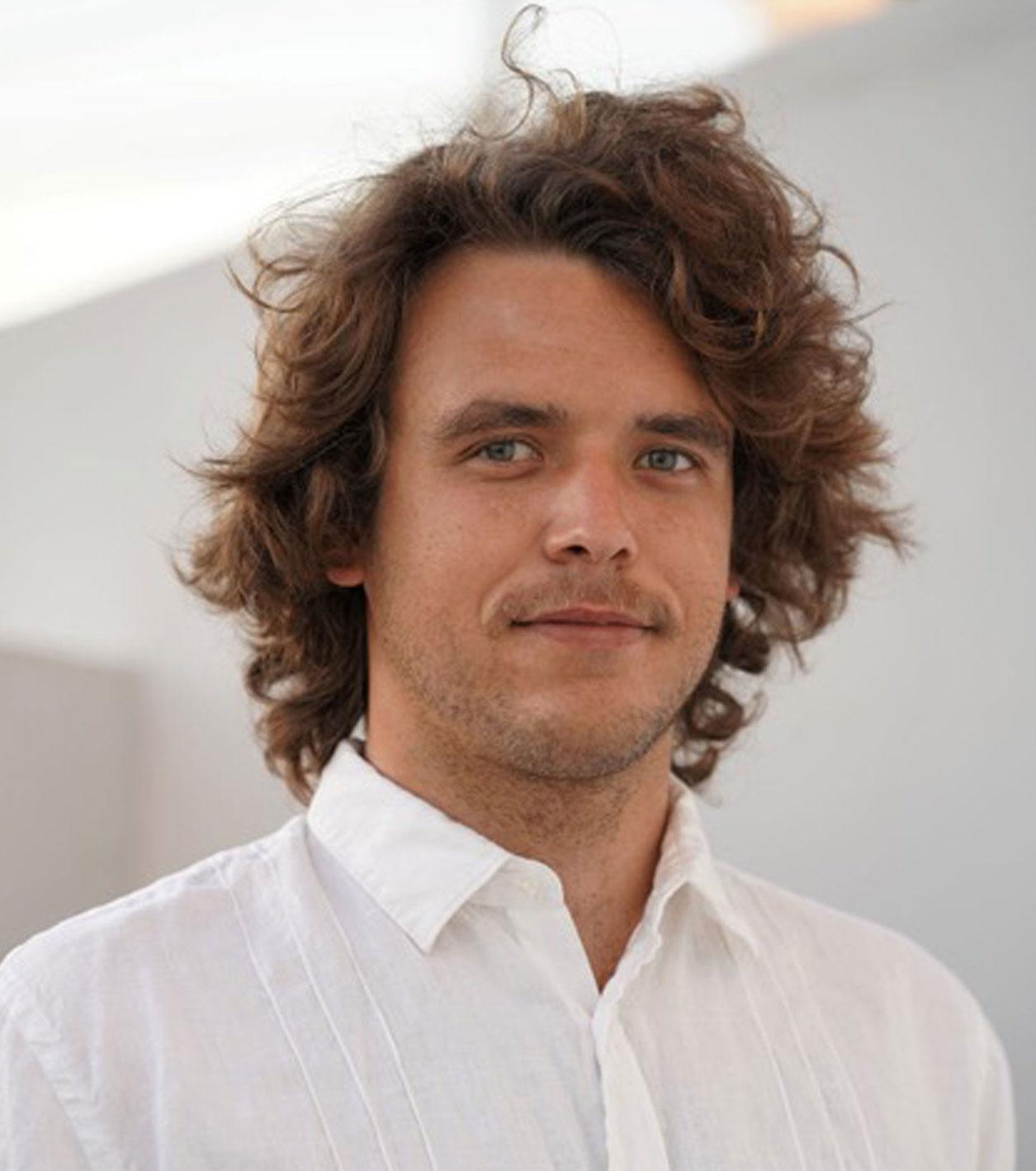
It was at Berkeley, while spending time with friends who were part of the Berkeley Disabled Students’ Program, that Singer first became aware of some limitations of current assistive technologies.
“These devices work, but sometimes they’re just inadequate. That’s to say, they’re like an engineer’s solution, not a solution fully designed with a human use case in mind,” said Singer. “As I learned about digital fabrication, I realized a lot more could be done in assistive technology, especially leveraging non-traditional types of input that aren’t hand-based, like the keyboard and the mouse.”
Singer’s first deep dive into assistive technology occurred during an informal weekend hackathon at a friend’s house. To open his front door from outside, the friend had to drive his wheelchair into a press button while simultaneously engaging the authentication system — a cumbersome process that usually required multiple attempts. But Singer and some classmates, including Augmental co-founder Vega, hacked the automatic door-opening motor and built a custom-made app that allowed an electromyographic sensor to control door movement. The sensor detects when a user flexes or squeezes their hand muscles, triggering the door open command.
“I’ll never forget this project,” said Singer. “In just a few days, we managed to adapt an input device to better meet [the user’s] needs and, hopefully, improve [their] day-to-day experience with these technologies.”
Singer’s next project proved pivotal to his career path. As part of his embedded and cyber physical systems class, EECS 149, he built a self-driving, obstacle-avoiding wheelchair.
“This work was foundational to the internship I later did at Microsoft — in which I designed gaze-based wheelchair navigation interfaces for people with ALS and other neurodegenerative diseases – and, ultimately, my master’s project,” said Singer. “It was one piece of the puzzle that led to where I am today.”
Singer decided to stay at Berkeley to pursue a master’s degree in electrical engineering and computer sciences. He credits his advisor, Björn Hartmann, associate professor of electrical engineering and computer sciences, with giving him the freedom to blaze his own path as a maker and helping him land the internship at Microsoft.
“Björn gave me an avenue to explore a project that wasn’t fully established in the research labs at Berkeley, but sort of fit within the general scope,” said Singer. “He was willing to take a chance that I could do something worthwhile.”
The CITRIS Invention Lab also played a key role in Singer’s journey. It not only provided a community for makers, but also cutting-edge resources and around-the-clock access for superusers like Singer.
“There was no shortage of what you could do at the Invention Lab — from laser cutting and 3D printing to milling circuit boards. And if you had an idea, you could ask [former senior lab manager] Chris Myers; he almost always had the answer,” said Singer. “I gained a ton of knowledge and skills through the Invention Lab. That experience was priceless.”
Beyond school, Singer had little doubt that assistive technologies would be part of his future. “Once I had a taste of designing for folks with different abilities, and seeing the impact that it can actually bring — for me, nothing is more fulfilling,” said Singer.
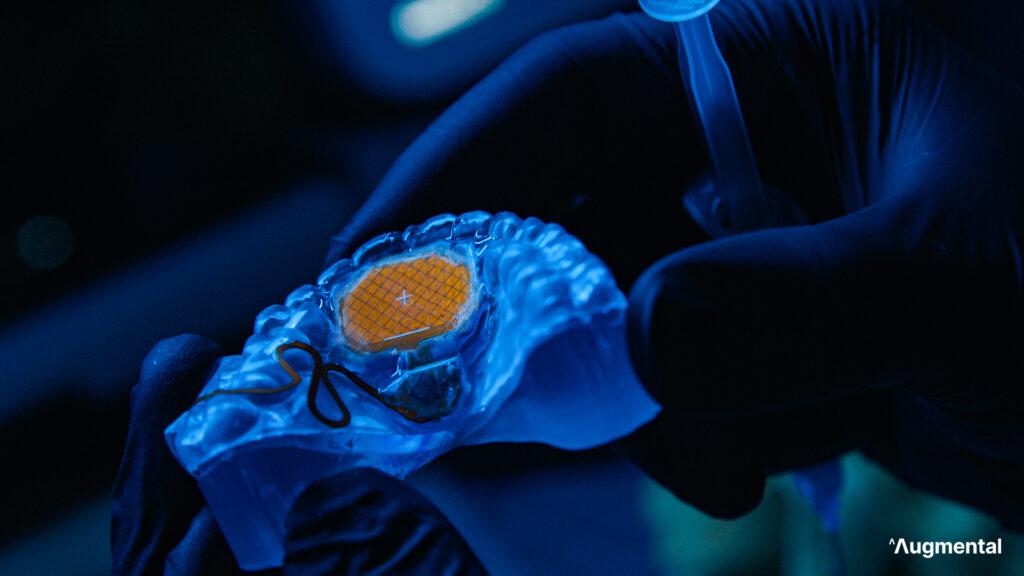
Still, he never envisioned himself becoming an entrepreneur. But a call from an old friend and colleague soon changed that. Vega had completed his master’s degree in media arts and sciences at MIT and proposed designing an interface system for people with spinal cord injuries. The idea was to use the tongue, what Singer and Vega like to call “the eleventh finger” because of its incredible dexterity and ability to move around with precision and ease of control.
Singer saw a new opportunity to take his interest in designing alternative input systems a step further. “This was in the realm of assistive technology, which I love, but it even spoke to this future in which we kind of change the paradigm of human-device interaction for everyone, even people without mobility issues,” he said.
With initial funding from the E14 Fund, which invests in MIT and MIT Media Lab spinoffs, followed by support from Berkeley’s SkyDeck accelerator program and The House Fund, which seeds Berkeley-founded startups, the two makers were on their way to launching Augmental.
“We received so much love from the universities,” said Singer. “We 100% couldn’t have launched this company without their support.”
Since founding Augmental, Singer and Vega have garnered recognition for their ingenuity, entrepreneurship and social impact. Recently, they were featured on the 2023 Forbes 30 under 30 list and awarded the Innovation Grand Prix at the 2023 Cannes Lions International Festival of Creativity. And at CES 2024, Augmental was the grand prize winner of this year’s Consumer Technology Association Foundation’s Pitch Competition, which featured the show’s most innovative health tech startups.
Singer remains passionate about assistive technologies and steadfast in his commitment to human-centered design. “My time at Berkeley and working on MouthPad^ have taught me how important it is to iterate the design process based on feedback from real users,” he said. “It’s the best way to ensure that I don’t just design a cool engineering solution, but something that is truly useful to people.”
This article was originally published by the UC Berkeley College of Engineering as "Berkeley alum develops tongue-controlled touchpad."

